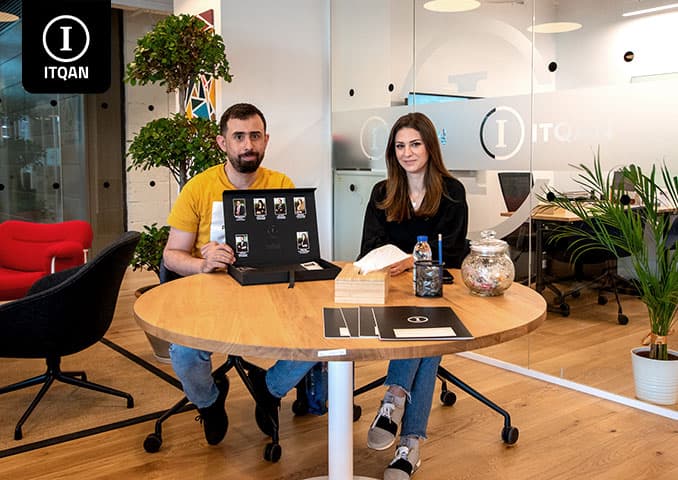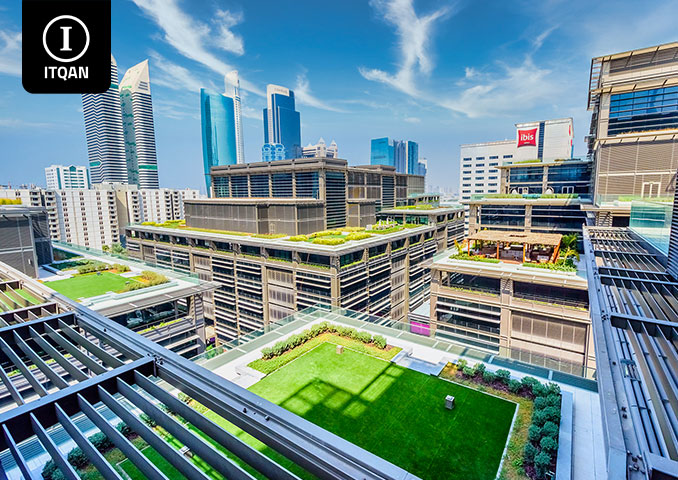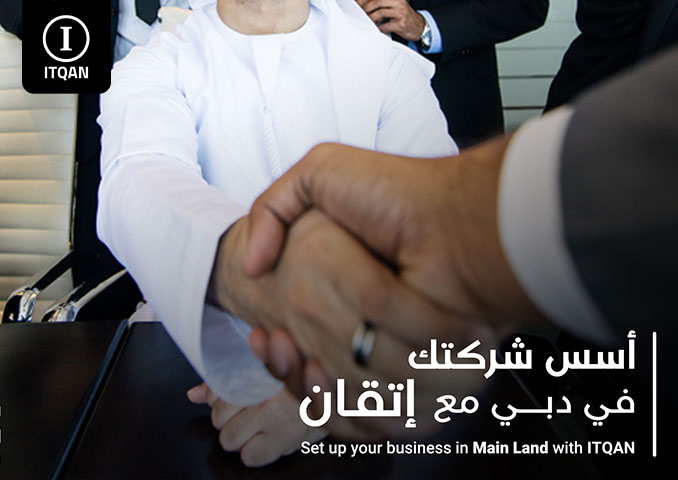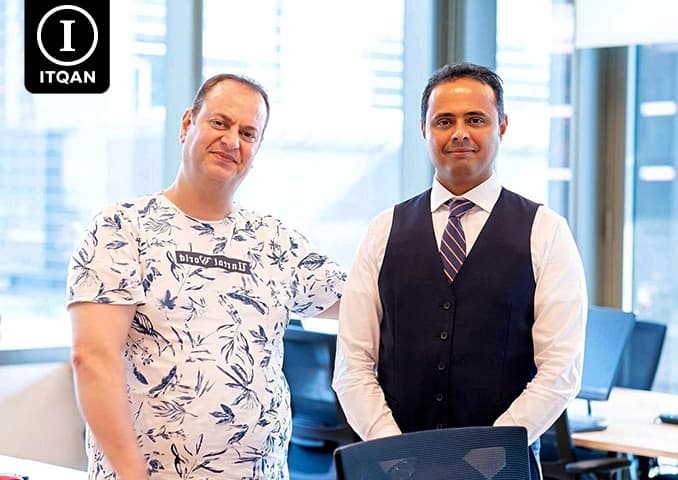Jebel Ali and the Dubai Free Zone are among the most prominent investment destinations in the world, providing an ideal environment for companies and investors wishing to benefit from the diverse business opportunities it provides. This region is distinguished by its strategic location near Jebel Ali Port, one of the largest ports in the Middle East, making it a major gateway for global trade and a vital transit point linking markets in Asia, Europe and Africa.
In addition to its distinguished location, the Jebel Ali Free Zone provides an advanced infrastructure that meets the needs of various economic sectors, whether industrial, commercial, or services. This infrastructure includes modern facilities such as warehouses, distribution centers, and office spaces equipped with the latest technology. The region also features an advanced administrative system that contributes to facilitating procedures for establishing companies and managing businesses with high efficiency, which reduces bureaucracy and saves time and effort for investors.
Investment opportunities in Jebel Ali are diverse and include many promising sectors such as industry, trade, logistics, and financial services. The free zone also provides encouraging incentives for investors, such as tax exemptions, full foreign ownership of companies, and easy transfer of profits and capital. These advantages make Jebel Ali an attractive choice for companies seeking to expand into regional and international markets.
Moreover, Jebel Ali Free Zone has a flexible business environment and investment-friendly laws, which enhances business stability and supports sustainable growth. For start-ups and multinational companies alike, investing in Jebel Ali represents a golden opportunity to benefit from the accelerating economic growth in Dubai and the region as a whole.

Investment opportunities in Jebel Ali and the free zone
جدول المحتوى
ToggleProcedures necessary to start an investment in the Jebel Ali region
If you are thinking of starting an investment in the Jebel Ali area of Dubai, here are some basic procedures to follow:
- Market study and opportunities: Study the market in the Jebel Ali region and understand the investment opportunities available there.
- Determine the type of investment: Decide what type of investment you want, whether it is real estate, industrial, commercial, or other investments.
- Preparing a business plan: Prepare a detailed business plan that defines your goals and strategy for investing in the Jebel Ali area.
- Obtaining the necessary approvals: Ensure compliance with all laws and licenses required to start investing in the Jebel Ali area.
- Dealing with land and real estate: If you are planning a real estate investment in the area, search for suitable lands and be sure to comply with all regulations and laws related to real estate.
- Contracting with local suppliers and partners: Build a network of local suppliers and partners who can help you make your investment in the Jebel Ali region successful.
- Submit investment and implementation: Once setup and preparation are complete, submit the investment and begin the implementation and operation process.
- Process management and follow-up: After starting the business, make sure to manage the process effectively and monitor the investment performance regularly.
- Compliance with Financial and Legal Controls: Ensure compliance with all local and national financial and legal controls related to investing in the Jebel Ali region.
Capital requirements for establishing a company in the Jebel Ali region
Capital requirements for setting up a company in Jebel Ali Free Zone (JAFZA) depend on the type of company and the business activity you plan to undertake. However, there are some general principles that can be pointed out:
- Free Zone Limited Liability Company (FZ LLC): There are usually minimum capital requirements that depend on the type of activity and the size of the company, but they are often flexible and depend on the sector in which you intend to operate.
- Branch of a foreign or local company: Branches of foreign or local companies in JAFZA usually do not require a specific capital upon incorporation, as they depend on the core capital of the parent company.
- Private equity company: Capital requirements may be relatively higher compared to other types of companies, especially if the company intends to engage in activities that require significant investments.
- Type of business: Capital requirements may vary based on the type of industry. For example, industrial or manufacturing activities may require higher capital compared to service or commercial activities.
- Company and Project Size: The planned company size and proposed project may affect the amount of capital required. Larger projects may require larger capital.
- Initial operating costs: These include rental costs, equipment, and initial operating costs, which must be taken into account when determining the required capital.
Types of investments available in Jebel Ali and the free zone
Here is a table showing the types of investments in the Jebel Ali Free Zone (JAFZA):
| Investment type | Description |
|---|---|
| Manufacturing industries | Production and assembly of products, including electronics, automobiles, chemicals, and heavy equipment. |
| Storage and distribution | Warehousing and distribution services for companies that import or export goods through Jebel Ali Port. |
| Logistics services | Providing transportation and logistics solutions, including air, land and sea freight. |
| Technology and communications | Companies working in the field of information and communications technology, software development, and technical support services. |
| Consumer products | Import and export of consumer products such as food, furniture, clothing, and cosmetics. |
| Financial services | Financial institutions, banks and insurance companies that provide specialized financial services to companies and individuals. |
| Energy and petrochemicals | Investment in energy fields including oil, gas, petrochemicals and renewable energy sources. |
| General trade | Import and export a wide range of different products and commodities, with a focus on global markets. |
| Metals and precious metals | Trade in metals such as iron, aluminum, and gold, including manufacturing and processing. |
| Food industries | Production, manufacturing and distribution of food and beverage products. |
| Health care and medicines | Development and production of medicines, medical equipment, and health supplies. |
| Education and training | Investment in educational institutions, vocational training and personal development centres. |
| Hospitality and tourism | Establishing and operating hotels, resorts, and tourist facilities, including tourism and travel services. |
| Retail | Establishing retail stores and shopping centers to sell products directly to consumers. |
| Research and development | Investments in research and development centers, especially in the technical and industrial fields. |
These investments reflect the great diversity of economic sectors available in Jebel Ali and the Free Zone, making it an important center for international business and trade in the region.
Advantages offered by Jebel Ali Free Zone to investors
Jebel Ali Free Zone (JAFZA) is one of the largest and most important free zones in the world, and offers a wide range of benefits that make it a preferred destination for investors from all over the world. Here are some of the benefits that JAFZA offers to investors:
- Tax exemptions: Companies in Jebel Ali enjoy complete exemptions from taxes on income and profits for long periods of up to 50 years, which enhances the companies’ net profits.
- Full Foreign Ownership: Foreign investors can own 100% of their company without the need for a local partner, giving them complete control over their business.
- Strategic location: Jebel Ali Free Zone is located near Jebel Ali Port, one of the largest ports in the world, which facilitates access to global markets and provides important logistical advantages.
- Advanced Infrastructure: JAFZA provides world-class infrastructure that includes modern offices, warehouses, and advanced manufacturing facilities, which supports business growth and expansion.
- Flexible registration procedures: Company registration procedures in JAFZA are easy and flexible, as a company can be established quickly and at a competitive cost.
- Integrated logistics services: The free zone provides integrated logistics services that support the movement of goods and international trade, including warehousing and transportation.
- Facilities in obtaining visas: JAFZA provides facilities in obtaining work and residence visas for employees and investors, which facilitates the process of recruiting talent.
- Free Trade Agreements: Companies in Jebel Ali benefit from the free trade agreements that the UAE has concluded with many countries, allowing them to access multiple markets without customs duties.
- Government support: Companies in JAFZA enjoy strong government support, as the UAE government provides facilities and legislation encouraging investment.
- Easy access to facilities: Jebel Ali Free Zone provides easy access to public facilities such as banks, hotels, and restaurants, in addition to advanced logistics services.
- Re-exports: Companies in JAFZA can benefit from re-exports at competitive prices, enhancing profit and growth opportunities.
- Diversity in business activities: JAFZA offers a diverse environment, where investors can establish companies in diverse fields including manufacturing, trade, logistics, and technology.
In conclusion, investing in Jebel Ali and the free zone is a strategic opportunity for everyone looking for expansion and sustainable growth in a dynamic economic environment. Jebel Ali, with its strategic geographical location and proximity to global trade centres, is considered one of the most important investment destinations in the Middle East, allowing investors to easily access regional and global markets.
Jebel Ali Free Zone provides multiple investment advantages, including tax and customs exemptions, full ownership of foreign companies, in addition to advanced infrastructure that meets the needs of various industries. These advantages make the free zone an ideal environment for companies seeking to achieve high operational efficiency and low operating costs, which enhances their competitiveness in international markets.
In addition to government support and quick procedures that facilitate the process of establishing companies, Jebel Ali Free Zone offers a flexible work environment that encourages innovation and growth. This ongoing government support includes facilities for obtaining licenses and approvals, in addition to integrated logistical services that support the supply chain through world-class ports and advanced land and air routes.
The most important frequently asked questions about investment opportunities in Jebel Ali and the free zone
How can investors benefit from Jebel Ali’s strategic location?
The Jebel Ali area is located near Jebel Ali Port, one of the largest ports in the world, and Al Maktoum International Airport. This strategic location makes it easy to access global and regional markets via sea and air, which enhances the efficiency of logistics operations and reduces transportation costs.
Can SMEs invest in the Jebel Ali area?
Yes, Jebel Ali Free Zone offers great opportunities for small and medium enterprises (SMEs), as they can benefit from tax and customs benefits, as well as the logistical support available to expand their business regionally and internationally.
Does Jebel Ali provide training or educational programs to support workforce development?
Yes, Jebel Ali provides many training and educational programs to support workforce development. These programs aim to improve employees’ skills and increase their efficiency in line with market needs. The region also provides opportunities for vocational and technical training in cooperation with leading educational institutions.
How can you benefit from international trade relations by investing in Jebel Ali?
Investing in the Jebel Ali region provides an opportunity for companies to benefit from international trade relations thanks to the region’s location as a major gateway for trade between East and West. Companies can expand their business through strategic partnerships with local and international companies, and benefit from trade agreements that facilitate export and import operations.
















